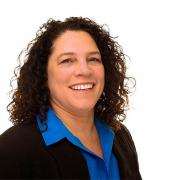Healthy Communities: Continuing the “Unfinished Business” of the EPA
I started at Earthjustice five months ago, after serving in the Obama Administration as an advisor to the Administrator of the Environmental Protection Agency (EPA). My job was to advise the EPA on environmental justice issues, which involved working with communities of color, and low-income and tribal communities that were fighting for healthier communities by trying to reduce the inequitable burden of toxins and hazardous substances that polluted their air, their water, their land and their bodies.
Overburdened communities are fighting strenuously but sometimes lack the resources, capacity and access to power that other communities can take for granted. Their communities—like many neighborhoods in the Bronx, N.Y., where I lived as a child, were overburdened with landfills, waste transfer stations, refineries, power plants and myriad sources of pollution for reasons that have a whole lot to do with race and class.
I was fortunate to work for an EPA administrator who believed in elevating environmental justice to every aspect of the agency. Administrator Lisa Jackson would say, ‘“Environmental Justice is the unfinished business of the EPA. ‘ ” Her clear goal was to take the work the EPA has done in reducing air pollution, reducing water pollution, cleaning up toxic contaminated properties and superfund sites, and ensuring that the protections were equitably available in black, Latino, Native American and low-income communities.
I’ve learned throughout the years that we need to think about the environment and how it impacts how people live. At Earthjustice, where I lead the organization’s Healthy Communities portfolio I strive to look at communities holistically, thinking about identifying the different pathways to improving quality of life. We’re able to leverage the different legal, advocacy, and legislative tools to support communities that are fighting for better enforcement of the Clean Air Act, Clean Water Act and other federal environmental protections that were created to protect everyone, not just those with the most access to attorneys and elected officials.
I think it’s essential that we examine all aspects of how a community lives and interacts with the environment so that we can really get to a place where everyone’s benefitting from a clean and healthy, and certainly more sustainable and resilient community.
There is obviously a lot to do. We will continue to focus our priorities on clean air, working with communities so that toxic air pollution rules for oil refineries are stringent enough to protect the communities that live right next to those refineries. We will also work with local groups to ensure implementation of those standards that are truly most protective to communities.
We’re going to continue to work on the clean water priorities that we have: working with the communities in Appalachia to fight against the ravages of mountain top removal. We are working to protect and improve the conditions of our watersheds like Chesapeake Bay, Puget Sound, Lake Tahoe, the and doing important work in Florida , including in the Everglades, to stop sewage and agricultural runoff from harming waterways.
We will continue to partner with farmworker and other group to reform broken laws and regulate the use of chemicals, targeting the most dangerous chemicals and harmful substances like flame retardants, harmful pesticides, and aviation fuel that still has lead in it.
In urban areas throughout the U.S., people are still living with high levels of pollution and excessive toxic risk that it’s quite obvious when you visit their neighborhoods that we can do better. We have the technology, innovation and the wherewithal to figure out how to reduce those burdens and provide better environmental benefits and certainly healthier outcomes.
The work, however, is not easy. Earthjustice and environmental justice organizations often face off against powerful corporate interests that prioritize profits over public health while spending millions to weaken and block strong environmental regulation.
As a nation we shouldn’t accept the huge health disparities between communities that are overburdened by pollution and those communities that are more privileged. But these inequities do exist and that’s what drives me – the opportunity to really improve the health of our communities and the lives of our children. If we as a nation ever create healthy communities for all, I will be out of a job and I will be more than happy to look for a new line of work because the goal I have now will be complete.



The views and opinions expressed in this post are those of the author(s) and do not necessarily reflect those of MomsRising.org.
MomsRising.org strongly encourages our readers to post comments in response to blog posts. We value diversity of opinions and perspectives. Our goals for this space are to be educational, thought-provoking, and respectful. So we actively moderate comments and we reserve the right to edit or remove comments that undermine these goals. Thanks!